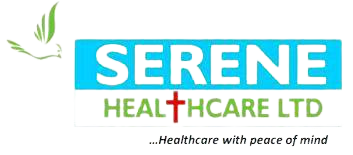Drawbacks and Benefits Of HMOs + 5 Ways To Maximize It
Weighing the drawbacks and benefits of HMOs before choosing a plan is very necessary, just as you would with any other option. We’ve listed some of the program’s most common benefits and drawbacks below.
However, for clarity purposes let’s answer the pending question, what is HMO?
What Exactly Is Health Maintenance Organization (HMO) Coverage?
Health maintenance organizations (HMOs) provide health insurance to cover individuals in exchange for monthly or annual fees.
When people visit doctors and other providers in the HMO’s network, they pay lower premiums than those with other types of health insurance.
The Benefits of HMOs

The first and most obvious benefit of HMOs is the low cost. You will pay fixed monthly or annual premiums that are lower than traditional forms of health insurance.
These plans typically have low or no deductibles, and your co-pays are generally lower than those of other plans. Your prescription will also have lower out-of-pocket costs. Billing is also typically less complicated.
There’s also a good chance you’ll have to deal with the insurer directly. That’s because you have a primary care physician (PCP) who you select and who is in charge of managing your treatment and care. This professional will also advocate on your behalf for services.
This includes referring you to specialty services. An HMO plan generally provides higher-quality care. This is because patients are encouraged to get annual physicals and seek treatment as soon as possible.
Summary of the Benefits of HMOs?
The primary benefits of HMOs are cost and care quality. People who purchase HMO plans pay lower premiums than those who purchase traditional forms of health insurance.
This enables insured parties to receive better care from providers contracted with the organization. HMOs typically have low or no deductibles and charge low co-pays. HMO members do not need referrals for specialty services such as mammograms.
Drawbacks Of HMOs

Naturally, there are many benefits of HMOs, however, there are a few drawbacks. If you pay for an HMO, you are limited in how you can use the plan.
You must choose a doctor who will be in charge of your healthcare needs, including primary care and referrals. This doctor, however, must be a member of the network.
This means that you are responsible for any costs incurred if you see someone outside of the network, even if your area does not have a contracted doctor.
If you want your HMO to pay for any specialist visits, you’ll need to get referrals. If you need to see a rheumatologist or a dermatologist, for example, your PCP must refer you before the plan will pay for your visit. If you don’t, you’re on the hook for the entire bill.
Certain medical claims, such as emergencies, require you to meet very specific conditions. For example, what constitutes an emergency is usually defined very precisely. If your condition does not meet the criteria, the HMO plan will not pay.
How Do I Know If An Hmo Is The Right Choice For Me?
Aside from the cost, an HMO may suit your needs and lifestyle:
If your PCP belongs to a specific network: If you like your PCP, you might want to join their HMO. This preserves your doctor-patient relationship, and you receive referrals from people you already trust.
If you require more coordinated care, your primary care physician (PCP) will refer you to specialists and monitor your progress. They can develop a comprehensive treatment plan with access to all of your test results and records.
If you don’t need a lot of flexibility, do you just go to your doctor for regular check-ups and avoid seeing specialists or getting referrals? You might only require an HMO.
If you rarely travel outside your network area: You’ll be able to see in-network doctors whenever you need care if you stay within your HMO’s service area. This should keep your medical expenses to a minimum.
How To Maximize The Benefits Of HMOs

Below are the various ways you can easily maximize the benefits of HMOs.
1. Confirm The Doctor And Hospital Network
Your HMO plan can only be used with an accredited doctor and hospital. Check that the network includes your preferred hospitals and doctors and that the nearest hospital is accredited in case of an emergency.
2. Add Your Dependents (If Applicable)
The majority of HMOs cover your immediate family. If not, inquire whether it can be added. And if it can, do so as soon as possible.
4. Avoid Emergency Room Visits (If Possible)
If you arrive at the hospital after clinic hours, you will be directed to the emergency room. Consultations in the emergency room are three times the price of outpatient consultations. Unnecessary E.R. consultations result in inefficient use of your HMO plan. Avoiding this will help you cut down costs and in turn maximize the benefits of HMOs.
5. Use The Services Of The Primary Care Clinic
HMO companies own PCCs, which provide members with access to primary care doctors and basic laboratories.
Most HMOs (like Serene Healthcare HMO organization in Nigeria) provide benefits such as FREE Unlimited consultations, and the cost of laboratory procedures is significantly lower than that of major hospitals, lowering your utilization cost.
There are about only 25 reliable licensed HMO companies in Nigeria and as such, It takes time, effort, and hard work to know and compare which one can provide you with the best package that meets your wants and needs, that’s why we’re here!
Please feel free to contact our call center personnel at 09135453188, 09135178377, 08029352280, or 08033707662 and we will assist you in determining the most practical solution to your healthcare needs.
Summary On The Drawbacks and Benefits Of HMOs
HMOs are one of the more affordable options for health insurance, but costs vary depending on the plan, region, and whether you enroll through your employer or as an individual.
HMOs only provide coverage for in-network services. A primary care provider is usually in charge of the care.
Conclusion On The Drawbacks and Benefits Of HMOs
Health insurance is a critical consideration for everyone. The best plan for you is determined by your personal circumstances, such as your health, finances, and quality of life. Traditional health insurance plans, such as PPOs and HMOs, are available.
The HMO offers insured individuals lower out-of-pocket costs but more restrictive conditions, such as the doctor you see. Whatever plan you choose, make sure you weigh the advantages and disadvantages.
Finally, to help you end your search for the very best Health Maintenance Organization In Nigeria, Serene Healthcare is your definite answer.

